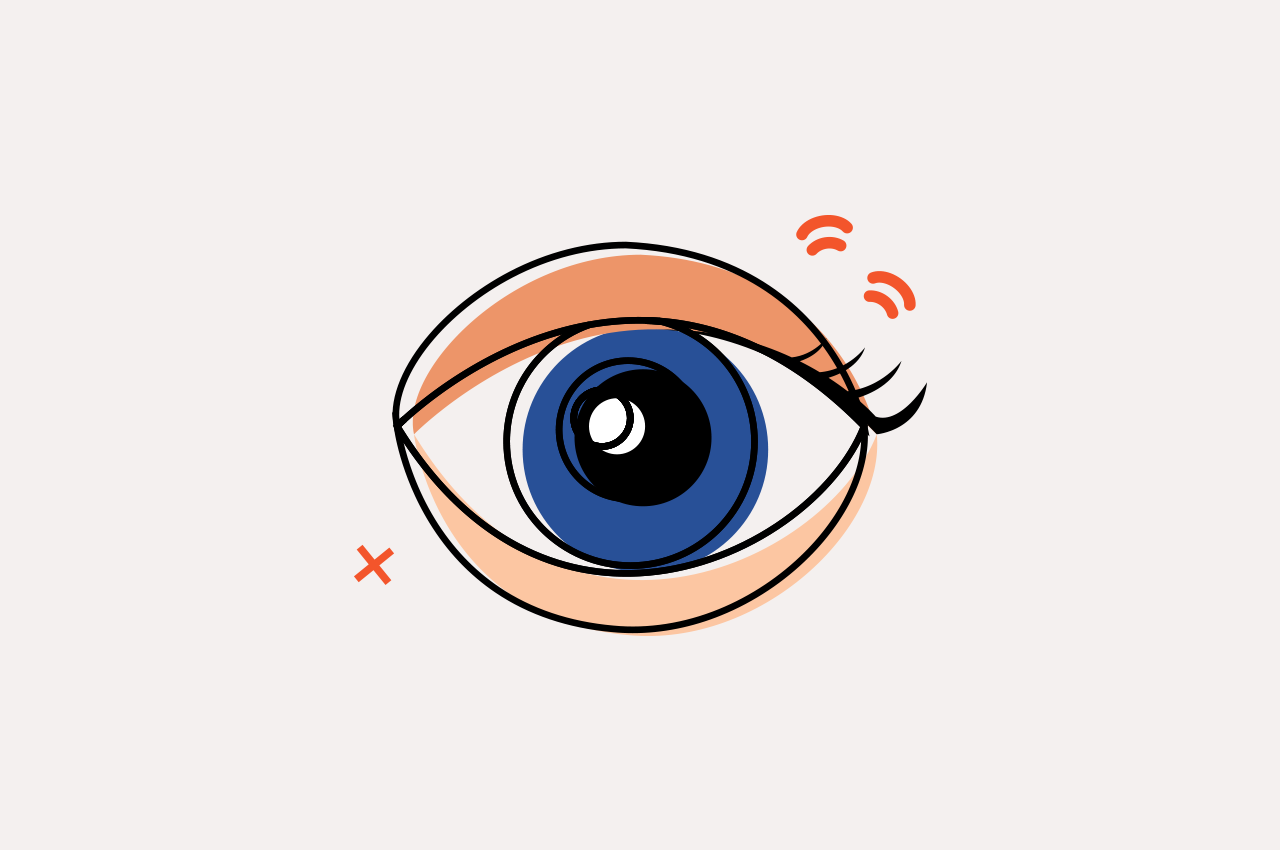Ever noticed how your eyelid twitches sometimes? Don’t worry, it’s very common.
An eyelid twitch, also known as myokymia, is a repetitive involuntary spasm in the eyelid muscles. The twitch usually occurs in your upper lid, but it can also happen in the lower lids.
For most people, spasms are mild and feel like a gentle tug. These can last for a minute or two, every few seconds. Even though the twitches are bothersome, they are usually painless and don’t need treatment. Some people, however, experience eyelid spasms that are strong enough to force their eyelids to close. This is a condition called blepharospasm and is a more serious problem which needs to be treated.
Conditions that can increase the risk of eye twitching include:
- Eye irritation.
- Eyelid strain.
- Fatigue.
- Lack of sleep.
- Physical exertion.
- Side-effects from medication.
- Stress.
- Alcohol, tobacco and caffeine products.
Causes of eye twitching
Allergies
Itchy, swollen eyes is a common allergy symptom. If you rub your eyes for relief, histamine is released into your eyelid tissues and tear film. This may trigger an eyelid twitch.
Remedy it
Over-the-counter eye drops may help reduce your allergy symptoms. Talk to your doctor about an antihistamine and keep in mind it can cause dry eyes.
Nutrition issues
According to research, if you’re skimping on healthy foods in your diet, your body could be lacking in essential nutrients like magnesium. This may lead to eye spasms. Remedy it: Talk to your doctor if you suspect your diet may be the cause of your twitching eyelids.
Eye strain
Do you stare at screens all day? Join the club. Digital eye strain is very common as we all use smartphones and laptops almost all day, every day. This puts strain on the eyes and in turn, causes eye twitching.
Remedy it:
Follow the 20-20-20 rule to protect your eyes from strain. Take a break every 20 minutes and look away from your screen. Give your eyes a rest for at least 20 seconds or more. Focus on something at least 20 feet away. This helps with eye fatigue. Computer eye glasses can also help.
Stress
This is the most common eye twitching culprit.
Remedy it:
Take up a relaxing exercise like yoga or breathing exercises. Spend time with friends and family and give yourself time to rest.
Too much caffeine
Everyone needs a cuppa sometimes, but if you have too much, your eyes could start spasming. Caffeine quickens your pulse, and this can also increase involuntary impulses like eye spasms.
Remedy it:
Try drinking fewer cups of coffee per day or choose smaller cups. Alternatively, stick to decaf!
When to see a doctor
In some cases, an eye spasm could be a symptom of a brain or nervous system disorder. See your doctor immediately if:
- The spasms last for several weeks.
- The spasm affects parts of your face besides your eyes.
- Your eyelid closes completely each time you experience the twitching.
- Your upper eyelid droops.

